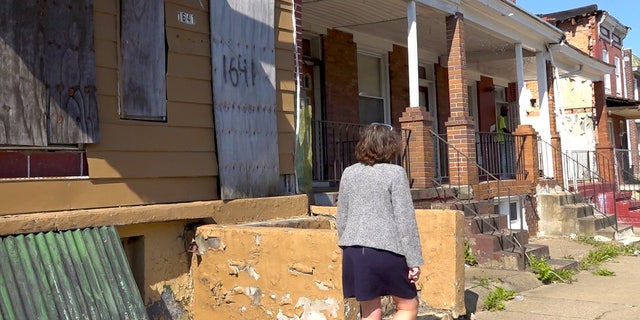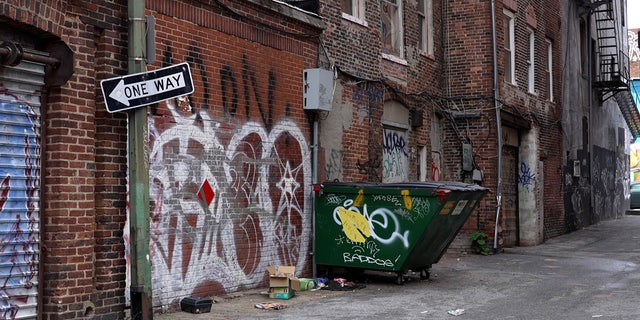Why Baltimore’s thousands of vacant buildings are a ‘crisis of epic proportions’
BALTIMORE – Red reflective diamonds dot the exteriors of crumbling, burned and boarded up row homes in Charm City, marking them unsafe. The thousands of abandoned properties cost the city more than $100 million a year and endanger lives.
“This is a crisis of really epic proportions that we have to address in our city,” Councilwoman Odette Ramos told Fox News.
BALTIMORE MAN HAD FORGIVEN AN ANONYMOUS SHOOTER WHO NEARLY KILLED HIM. THEN FATE STEPPED IN AGAIN
Ramos is at the forefront of efforts to clean up the city by turning lots over to developers and homeowners. It’s been a yearslong focus for her, but scrutiny on the issue intensified last year when three firefighters died in a vacant building fire.
Ramos said that event highlighted for “the entire city how important it is to address” vacant buildings.
More than 14,000 vacant buildings are scattered across Baltimore, costing the city around $100 million per year in maintenance, fire department and police resources, according to a recent report from Johns Hopkins University initiative. Baltimore had one of the highest vacancy rates in the country in 2019 at 8.1%.
“The research shows that our violent crime is happening in areas where there’s the most vacant properties,” Ramos said standing in front of a house sandwiched between two abandoned homes.
WHY BALTIMORE’S THOUSANDS OF VACANT BUILDINGS ARE A ‘CRISIS OF EPIC PROPORTIONS’:
WATCH MORE FOX NEWS DIGITAL ORIGINALS HERE
“We have residents right here who’s living in between two different vacant and abandoned properties,” she said. “That’s affecting their property value as well as getting mold and other things in their property. But they don’t want to leave because this is their home. So it’s unfair to them to have to live in that situation.”
Ramos said numerous factors contribute to the blight, dating as far back as 1911, when Baltimore adopted the nation’s first racially segregated housing ordinance.
“The segregation was real and intentional, and that has resulted in decades of disinvestment in traditionally Black communities,” Ramos said. “As well as flight from other parts of the city.”
A century later, some houses are left unclaimed after their owners passed away. Some are abandoned when families can’t keep up with the mortgage or taxes, and others are owned by foreign investors or landlords who have yet to develop the property, Ramos said.

BALTIMORE JUVENILE ASSAILANTS BEHIND STRING OF RIDE-SHARE CARJACKINGS, KIDNAPPINGS, POLICE SAY
Private developers demolished or rehabbed about 1,300 vacant properties last year, Ramos said, but another 1,100 became vacant. Baltimore’s population has also declined 7% over the past decade, with experts suggesting crime, lackluster schools and high property taxes could be to blame.
“But we know that more people do want to move here,” Ramos said. “So having the inventory is going to be critical.”
The city currently owns about 1,000 of them, less than 8% of the total. But a plan from Ramos and Councilman James Torrence seeks to drastically increase that number by creating Maryland’s first land bank.
If their legislation is approved, the quasi-governmental Land Bank Authority (LBA) would acquire abandoned properties through in rem foreclosure, when the liens on a property exceed its assessed value. The LBA would then list its inventory online using a fixed-price model, with the goal of cutting down on auctions and city red tape.

“If we do this right and we have money on the street and the houses are being rehabbed and more people are moving in, it’s eventually going to pay for itself,” Ramos said. “So it’s very exciting.”
An 11-member board would run the LBA under the legislation, and the land bank would last 15 years.
“We want the work to get done and then it will go away,” Ramos said.
Read the full article Here


